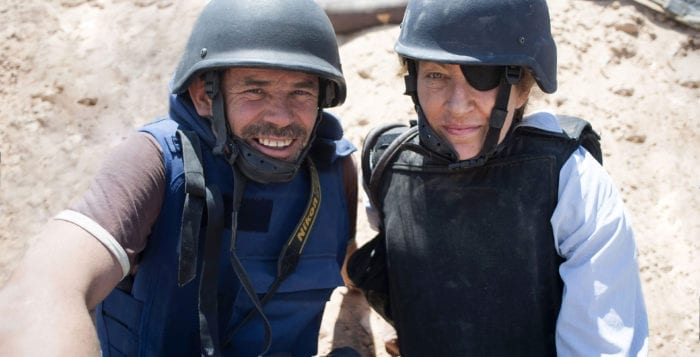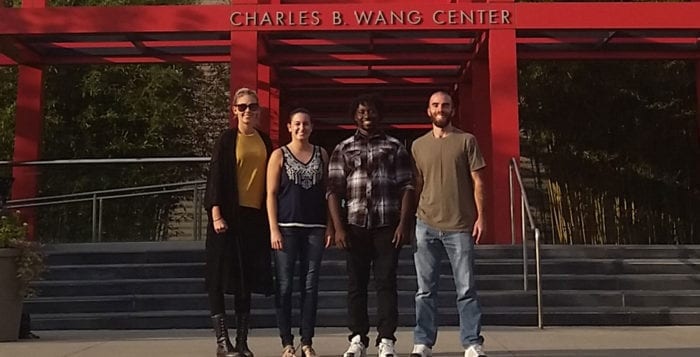Opioid addiction is the focus of a community forum to be held Saturday, Oct. 1 at Stony Brook University, thanks to an organization created by three of the school’s own.
The event, entitled “The Opioid Epidemic,” will run from 4:30 to 6:30 p.m. in the theatre at the Charles B. Wang Center. The forum is a product of Scientists for Policy, Advocacy, Diplomacy and Education, an entity created last winter by three doctoral candidates in the Department of Neurobiology.
The story behind the organization’s inception can be traced back to conversations about the future between Adrian Di Antonio, Ashleigh Lussenden and Lyl Tomlinson as they worked toward their doctoral degrees, Di Antonio said in a telephone interview. In their individual labs, they were solving specific problems, but together they wondered about what they could do to learn more and broaden their impact, he said. The three found and presented articles to each other, and eventually invited other graduate students from other disciplines to join in discussions.
The four SPADE leaders are looking to boost membership via their first major campuswide event. There will be speeches by elected officials, who will also participate in a panel discussion with a representative from the Suffolk County Sheriff’s office and medical professionals from Stony Brook and Columbia Universities.
So far, SPADE has one recruit: Kayla Gogarty, a doctoral candidate in Stony Brook’s chemistry department. She grew up in Suffolk County and earned her undergraduate degree from Drexel University in Philadelphia.
“As I’ve been immersed in science, I have realized that even if scientists provide concrete data, it is very difficult for this knowledge [e.g., climate change] to be translated into our laws,” she wrote in an email. “This has led me to my interest in science policy, because the data is not useful unless people in the community understand it and lawmakers use it for policy change.”
The members chose journalism professor Steven Reiner to be the moderator at their event. He has been at Stony Brook University for seven years and previously worked as a producer for 60 Minutes and National Public Radio. He currently hosts a web-series called Science on Tap, in which he helps distill complex information down to comprehensible language in the casual environment of a bar, according to Di Antonio.
Tomlinson is a proponent of making science understandable. Two years ago, the Brooklyn native and CUNY Brooklyn graduate won a NASA-hosted National Science Communication competition called FameLab.
“Think American Idol meets TED talks,” he wrote in an email. “I competed against almost 100 scientists from across the U.S. to deliver interesting science in bite-sized, three-minute chunks that were accessible and informative.” He did not add that he placed second, representing the U.S. in the international competition at The Times Cheltenham Science Festival in the United Kingdom, which brought together FameLab winners from more than 25 countries.
Di Antonio hales from Philadelphia, where he earned his undergraduate degree at the University of Pennsylvania. After SPADE was founded, he said the group explored ways they might get involved on campus. “Some topic at the intersection of policy and people,” he said.
As opioid drug overdoses currently cause more deaths than auto accidents or firearms, according to the Centers for Disease Control and Prevention, Tomlinson said they want people to know that this is an important issue.
Lussenden will speak on behalf of SPADE at the beginning of the program. A fourth year doctoral candidate, she received a National Science Foundation Graduate Research Fellowship. “I have always been interested in science and politics,” she wrote in an email, “and would like to work in science policy and diplomacy when I graduate.”






